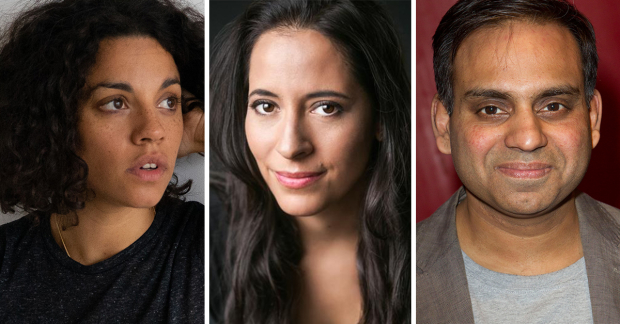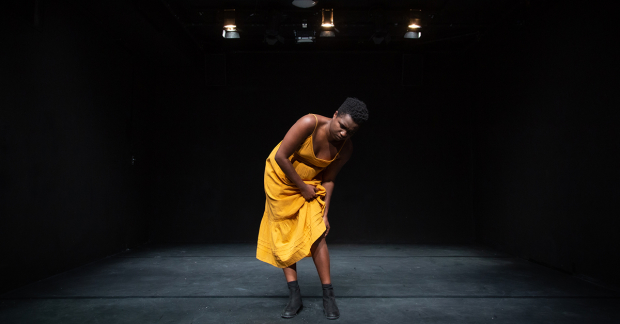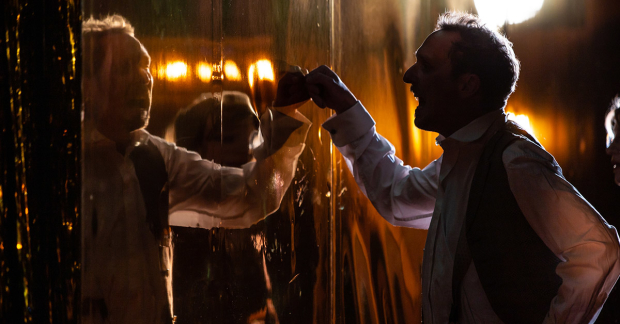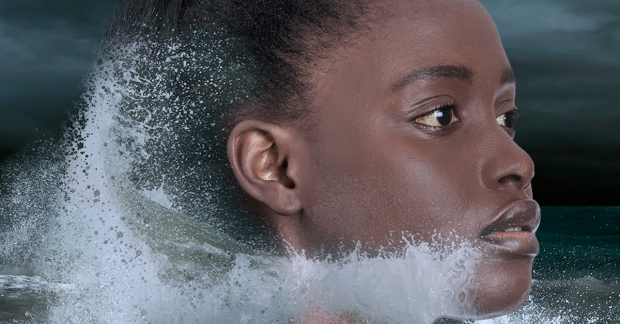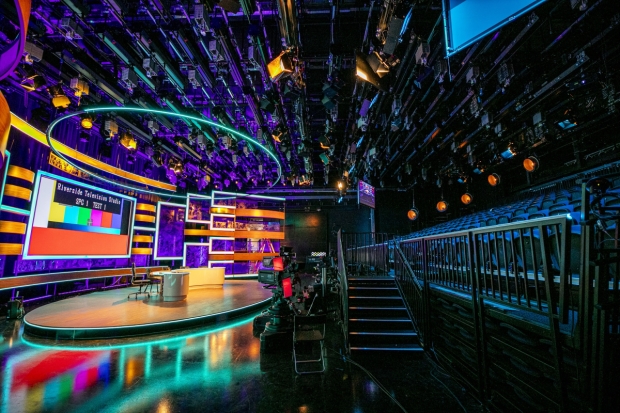Review: Faces in the Crowd (Gate Theatre)
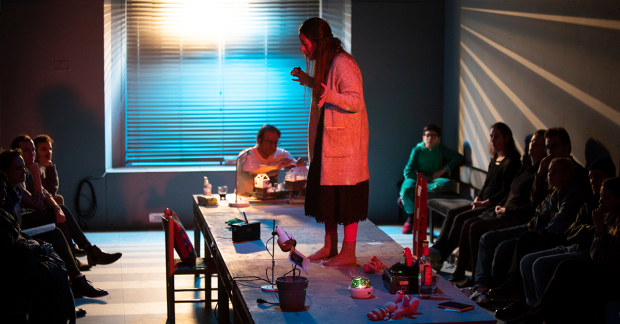
© Ellie Kurttz
Mexican author Valeria Luiselli released Los ingrávidos (later titled Faces in the Crowd) in 2011, and her novel gained praise for imaginatively weaving together three distinct voices of a narrator, her fictional stories and the account of a 20th-century Mexican poet. Sadly, the supernaturalism and freedom of form that were praised in Luiselli's writing are stumbling blocks in converting the tale into a coherent piece of drama. It is challenging to keep up with Ellen McDougall's adaptation and the initial feeling that this might be a story too complex and experimental to work on stage never subsides.
That's not to say that the show doesn't give its all nonetheless. Bethany Wells and George Dennis's astute set and sound designs accentuate some of the more interesting narrative features – the way Jimena Larraguivel's Woman disappears from view using slowly greying projected film polaroids of her existence is beautifully done. Her husband, played by Neil D'Souza, is fixated with a detailed architectural model that becomes a pertinent symbol of the breakdown of their marriage: he continues to tweak it when his partner frequently exits to comfort their screaming toddler heard via baby monitor. These are all really neat touches – a great deal of care and thought has gone into the production.
One of the more frustrating aspects of the script is that the relationship between the Woman and husband is teased but left unexplored. The audience only ever sees the present and how far the two of them have drifted but there might have been a time where this was not the case – learning about their past would have lent the later scenes of decay and mistrust a greater sense of understanding.
Jimena Larraguivel is watchable as the Woman, the highlight of the cast amidst a confusing intersection of narrative voices. Perhaps that is the intention of the play, to watch an intelligent and talented woman descend into madness as a result of her mundane domestic routine. Questions abound – if the husband is supposed to be a distant figure, why is he the character involved in fictional conversations the Woman creates to give her life meaning? As beautiful a voice as the musician (played by Anoushka Lucas) has, it's hard to work out what the purpose of her presence is.
There are too many unanswered riddles for Faces to have a real impact. Ultimately, the production is a prudent example of how writing a novel and a play are different tasks – converting the former to the latter can sometimes be either an impossible challenge or one requiring the minutest level of finesse.




